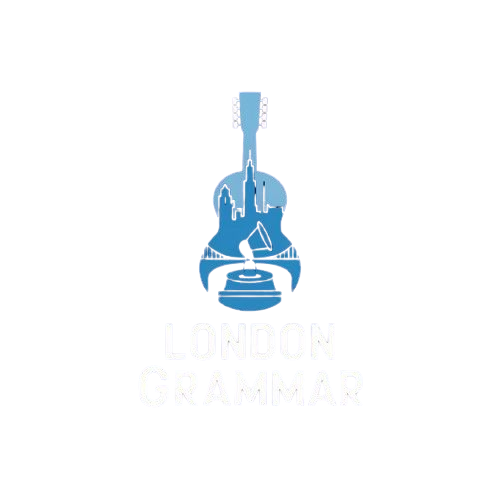Journal Prompts For Successful Recovery can help you stay focused and motivated. Writing daily can clear your mind and track your progress. Journal Prompts For Successful healing include thought-provoking questions about recovery and personal growth. They help you reflect on struggles and victories. With 100 recovery questions, you can explore emotions, triggers, and goals. Using addiction journal prompts can improve self-awareness and healing.
Journal Prompts For Successful recovery guide you through tough moments. They make you think about past choices and future plans. Recovery journal prompts encourage honesty and self-reflection. Writing about feelings and progress builds strength. Journal prompts for addiction recovery can reduce stress and improve focus. They help you find purpose and stay motivated. Using a journal daily supports a positive mindset. Writing is a simple but powerful tool for growth. Stay committed, and your journey will improve every day.
1. Journal Prompts To Start Your Journey

Starting a journal can feel overwhelming, but simple prompts make it easier. Write about your feelings, goals, and struggles. Journal Prompts For Successful recovery help you reflect on your progress and build self-awareness.
Use thought-provoking questions about recovery to explore emotions and triggers. Answering 100 recovery questions can give clarity and motivation. Writing with addiction journal prompts helps develop healthy coping strategies and a positive mindset.
Try recovery journal prompts about personal growth, overcoming fear, and staying strong. Journal prompts for addiction recovery guide you toward healing, self-discovery, and long-term success.
Journal Prompts To Start Your Journey
- “What is one thing you’ve been avoiding, and why do you think that is?”
- “Write about a time when you felt truly at peace. What made it happen?”
- “What does your ideal future look like, and what steps can you take today to get closer to it?”
- “Describe a challenge you are currently facing. How can you break it down into smaller steps?”
- “What are three things you are grateful for right now?”
- “When was the last time you felt truly proud of yourself? What made that moment special?”
- “What habit would you like to start, and how can you build it into your daily life?”
- “What’s one thing you wish others knew about you?”
- “How do you define success for yourself?”
- “Write about a person who inspires you. What qualities do they possess that you admire?”
- “What negative thoughts or patterns do you want to let go of?”
- “Describe one small act of kindness you can do today for someone else.”
- “What’s the biggest obstacle standing between you and your goals?”
- “Write about a time when you felt completely supported by someone. What did that feel like?”
- “What does self-care look like for you, and how can you prioritize it?”
- “List three strengths you possess that will help you on your journey.”
- “What is one fear you’d like to overcome, and what action can you take towards that?”
- “What does happiness mean to you, and how can you cultivate more of it?”
- “Write about a past success. What did it teach you about yourself?”
- “How do you typically react under stress? What could you do differently?”
- “What personal boundaries do you need to set for yourself?”
- “What are you currently holding onto that you need to release?”
- “What does your ideal day look like from start to finish?”
- “Write about a place that makes you feel calm and peaceful. What makes it special?”
- “Who in your life truly believes in you? How can you nurture that relationship?”
- “What is one skill you’d like to learn, and how will it benefit you?”
- “How do you want to be remembered by others?”
- “What’s one thing you can do today to push yourself out of your comfort zone?”
- “What would you do if you had no fear?”
- “Write about a time when you felt completely loved. What did that teach you about yourself?”
2. Journal Prompts For Optimistic Recovery
Journal Prompts For Successful recovery can guide you through an optimistic path. They help shift your mindset and focus on growth. Using these prompts daily encourages hope and positivity.
Focusing on optimism during recovery is crucial. Journal Prompts For Successful recovery allow you to explore your strengths, resilience, and goals. Writing about progress fosters a positive outlook.
With Journal Prompts For Successful recovery, you can embrace self-discovery. They promote healing by focusing on emotional well-being. Optimism in your journey is key to long-term success.
Journal Prompts For Optimistic Recovery
- “What is one positive thing you accomplished this week, no matter how small?”
- “Describe a moment when you felt proud of yourself during your recovery journey.”
- “What makes you feel grateful today, and why?”
- “How have you changed for the better since starting your recovery?”
- “What do you love most about yourself right now?”
- “Think about a recent success. How did it feel to achieve it?”
- “What positive habit have you developed that supports your well-being?”
- “What is one thing you look forward to in your recovery every day?”
- “How can you celebrate your achievements today?”
- “What strengths do you recognize in yourself as you move forward?”
- “How do you maintain hope even during difficult times?”
- “What small change could you make today to improve your mood?”
- “How does recovery make you a stronger person?”
- “What have you learned about yourself through this process?”
- “What message of encouragement would you give to your past self?”
- “How do you stay focused on your growth rather than setbacks?”
- “What are the positive relationships that support your journey?”
- “Describe a time you felt at peace with yourself.”
- “What’s one thing you could do today to practice self-care?”
- “How do you celebrate your victories, no matter how small?”
- “When was the last time you felt truly hopeful for your future?”
- “What does inner peace look like to you in your recovery?”
- “How do you stay motivated when facing challenges?”
- “What positive thoughts can you focus on today?”
- “What positive impact has your recovery had on your loved ones?”
- “What kind of person do you want to become as you grow in recovery?”
- “How do you define success in your recovery?”
- “What is one thing you’re looking forward to in the next month?”
- “What is the best advice you’ve received about staying strong?”
- “What part of your recovery journey fills you with hope?”
3. Journal Prompts To Heal Yourself
Journal Prompts For Successful Healing can help you focus on emotional recovery. Writing down your thoughts allows you to explore your feelings and gain insight into your struggles.
Using journal prompts encourages self-reflection and emotional growth. Asking thought-provoking questions about recovery helps you understand your past, confront your challenges, and embrace healing. It can be an essential tool for overcoming addiction.
Journal Prompts For Successful healing guide you toward emotional resilience and recovery. They allow you to track your progress, recognize patterns, and set meaningful goals. Journaling creates a path to personal empowerment and long-term well-being.
Journal Prompts To Heal Yourself
- “What is one thing I can do today to improve my emotional well-being?”
- “How can I practice more self-compassion in my daily life?”
- “What does my ideal self-care routine look like?”
- “What are three things I’m grateful for today?”
- “How do I feel about the progress I’ve made in my healing?”
- “What are my biggest sources of stress, and how can I manage them?”
- “How can I let go of guilt or shame in my life?”
- “What does emotional resilience look like for me?”
- “What are some healthy boundaries I can set for myself?”
- “What past experience can I learn from to heal better?”
- “How do I define inner peace, and how can I cultivate it?”
- “What positive affirmation can I say to myself each morning?”
- “How can I practice mindfulness in my healing process?”
- “What self-care activity brings me the most joy?”
- “How can I develop more patience with myself as I heal?”
- “What negative thought patterns can I work on changing?”
- “What emotion do I struggle with the most, and how can I address it?”
- “What are some small steps I can take to heal emotionally?”
- “How can I incorporate more positivity into my life each day?”
- “What are three qualities I admire in others that I can work to cultivate?”
- “What’s one thing I can do to boost my self-confidence today?”
- “How do I want to feel at the end of my healing journey?”
- “What’s one action I can take this week to feel more empowered?”
- “How can I forgive myself for past mistakes and move forward?”
- “What support system do I need to build or lean on during my healing?”
- “What habits can I change to improve my mental health?”
- “What part of my life needs the most emotional healing?”
- “How can I express gratitude for the healing journey I’m on?”
- “What does self-acceptance mean to me, and how can I embrace it?”
- “What is one small goal I can set today to nurture my emotional growth?”
4. Journal Prompts To Encourage Recovery
Journal Prompts For Successful Recovery can help you stay focused on healing. Writing regularly helps you reflect on your emotions, thoughts, and progress. By using journal prompts, you can track your journey and discover areas that need attention.
Journal prompts to encourage recovery help with overcoming addiction struggles and building resilience. They guide you in exploring personal growth and understanding the deeper layers of your emotions.
Incorporating Journal Prompts For Successful healing into your routine can boost self-awareness and motivation. These prompts encourage mindfulness, emotional healing, and positive lifestyle changes, which are essential in recovery. They offer valuable insights and support through every step of the recovery process.
Related Guide:
125 Prayer Journal Prompts To Build a Greater Spiritual Connection
Journal Prompts To Encourage Recovery
- “What does your ideal sober life look like? Describe it in detail.”
- “Write about a time you felt proud of your progress in recovery.”
- “What is one positive change you’ve made since starting recovery?”
- “How do you manage stress without turning to old habits?”
- “Describe a moment when you felt in control of your life.”
- “What is your biggest fear in recovery, and how can you face it?”
- “Write about a person who supports your journey and how they help.”
- “What healthy habits can you incorporate into your daily routine?”
- “What are the benefits of staying sober for your physical health?”
- “How do you handle cravings and urges that challenge your recovery?”
- “What would you say to someone just starting their recovery journey?”
- “How do you practice self-care to support your emotional healing?”
- “What steps can you take to build a strong support system?”
- “Write about a time you overcame a difficult situation without using.”
- “How can you continue to grow emotionally in your recovery?”
- “What is one thing you can do today to improve your mental health?”
- “Write down a recovery goal you want to achieve this week.”
- “How does gratitude play a role in your recovery journey?”
- “Describe a time when you made a positive choice instead of relapsing.”
- “How do you stay motivated when you’re feeling down?”
- “Write about an obstacle you’re currently facing and how you plan to overcome it.”
- “What makes you feel empowered in your recovery?”
- “What does inner peace look like to you, and how can you find it?”
- “Write a letter to your past self about how far you’ve come.”
- “How does your self-esteem improve as you stay sober?”
- “What are the most important lessons you’ve learned during your recovery?”
- “Write about your relationship with family and how it’s changed since recovery.”
- “What small victories are you celebrating in your recovery today?”
- “What does it feel like to forgive yourself, and why is it important?”
- “How can you ensure long-term success in your recovery?”
5. Journal Prompts To Give Up Addiction

Using Journal Prompts For Successful addiction recovery can guide you through overcoming addiction. Writing about your triggers and feelings helps you understand your behavior.
By answering recovery-related prompts, you reflect on the emotional struggles behind addiction. This helps build emotional resilience and break harmful habits.
Journal Prompts To Give Up Addiction also help with self-reflection. You can track your progress, identify setbacks, and stay motivated. It’s an excellent tool for personal growth.
Writing about your journey is empowering. It encourages self-acceptance and allows you to visualize life without addiction. With consistent use, these prompts can support long-term sobriety.
Journal Prompts To Give Up Addiction
- “What made you first try the substance? Reflect on that moment.”
- “Describe a time you felt proud of staying sober.”
- “What do you want your life to look like without addiction?”
- “Write about the last time you felt fully in control of your choices.”
- “What triggers make you want to relapse, and how can you avoid them?”
- “How has addiction affected your relationships? Write it down.”
- “What are three things you could do today to stay on track?”
- “List your top three reasons for wanting to quit.”
- “What positive habits can you start building in place of old ones?”
- “Write about your future self if you continue on this recovery path.”
- “What’s one thing you can do to break the cycle of addiction today?”
- “How does addiction hold you back from living your fullest life?”
- “Who in your life supports your recovery? Write about them.”
- “What is the hardest thing about letting go of addiction?”
- “Write about a time when you felt empowered to make a change.”
- “What does your ideal sober life look like?”
- “What is something new you could try in your recovery journey?”
- “Reflect on the benefits of being free from addiction.”
- “How do you handle stress without turning to old habits?”
- “What’s a small win you can celebrate in your recovery today?”
- “How do you feel about your self-worth when you’re sober?”
- “Write about a situation where you overcame a temptation.”
- “What part of your life would you like to improve the most by quitting?”
- “What does it mean to you to live a life free from addiction?”
- “How would quitting addiction improve your health?”
- “What is your biggest fear about quitting, and how can you overcome it?”
- “Write about the impact of addiction on your mental health.”
- “What would your family’s life look like if you gave up addiction?”
- “How can you create a daily routine that supports your decision to quit?”
- “What’s one reason you feel hopeful about your recovery today?”
6. Journal Prompts To Start Recovery
Starting recovery can be tough, but Journal Prompts For Successful healing can make it easier. Journaling helps you reflect on your journey and track your progress.
Writing with journal prompts allows you to dig deeper into your feelings and uncover hidden emotions. It’s a great way to start your healing process and build self-awareness.
Start with simple prompts like: “What does recovery mean to me?” or “What challenges do I face today?” These questions help you get to the heart of your struggles.
By using Journal Prompts For Successful recovery, you create a clear path forward. Journaling helps you overcome obstacles, understand your triggers, and stay focused on your goals. It’s an essential tool for long-term sobriety.
Journal Prompts To Start Recovery
- “What are the main reasons you want to start your recovery journey?”
- “What does recovery look like to you?”
- “How do you envision your life after recovery?”
- “What is your biggest fear about starting recovery?”
- “How can you stay motivated during tough times?”
- “Who can you turn to for support in your recovery?”
- “What unhealthy habits do you want to leave behind?”
- “What positive changes do you want to make in your life?”
- “How do you plan to celebrate small victories in your recovery?”
- “What resources do you need to start your recovery journey?”
- “How do you feel about the challenges you’ll face in recovery?”
- “What are your strengths that will help you succeed?”
- “What are the first steps you need to take in your recovery?”
- “How will you handle setbacks in your recovery journey?”
- “What does self-care look like for you?”
- “How can you develop a strong routine in recovery?”
- “What does a healthy lifestyle mean to you?”
- “What has been the hardest part of your addiction?”
- “How has addiction impacted your relationships?”
- “What do you want to learn about yourself in recovery?”
- “How can you practice mindfulness in your daily life?”
- “What personal goals would you like to achieve in recovery?”
- “How will you stay accountable to your recovery process?”
- “What is one thing you can do today to start your journey?”
- “How do you plan to deal with stress without turning to old habits?”
- “What role does hope play in your recovery journey?”
- “How can you rebuild trust with your loved ones?”
- “What new coping mechanisms would you like to explore?”
- “How do you see yourself growing emotionally during recovery?”
- “What does inner peace mean to you, and how can you find it?”
7. Journal Prompts To Discover Your Recovery Goal

Journal Prompts For Successful recovery can guide you in discovering your recovery goals. Writing about your aspirations helps clarify your path and stay motivated.
Use journal prompts to identify what you truly want to achieve in your recovery. Reflect on the challenges you face and how you can overcome them.
By asking yourself thoughtful questions, you can uncover hidden goals that will keep you focused. Track your progress and make adjustments as needed.
These prompts help you set clear, achievable goals in recovery. Each entry builds on your strength, helping you create a positive and empowering recovery journey.
Journal Prompts To Discover Your Recovery Goal
- “What does recovery look like to you? Describe your ideal life after overcoming addiction.”
- “What personal strength do you want to build through your recovery journey?”
- “How can you celebrate small victories along the way? What milestones will keep you motivated?”
- “Think about your future. What’s one thing you want to achieve in the next year?”
- “What are the obstacles you fear the most, and how can you overcome them?”
- “Who in your life supports you the most, and how can you involve them in your journey?”
- “How do you envision your health—physical, emotional, and mental—improving over time?”
- “What bad habits do you want to leave behind, and what new habits do you want to form?”
- “What’s one way you can practice self-care every day during your recovery?”
- “How will you measure progress in your recovery? What small steps can you take today?”
- “How can you create a positive daily routine to support your goals?”
- “What activities or hobbies would you like to explore to build a fulfilling life in recovery?”
- “What’s one thing you can do this week to take a step toward your recovery goal?”
- “What will success in recovery mean to you, and how can you make it happen?”
- “What does emotional healing look like to you, and how can you start today?”
- “Think about a role model. What qualities do they have that you’d like to incorporate into your recovery?”
- “How will you hold yourself accountable for making progress in your goals?”
- “What’s one area of your life you want to improve the most, and how can recovery help?”
- “What does your ideal support system look like, and who can be part of it?”
- “When you think about your future, what is the most exciting part of your recovery?”
- “What do you want to learn about yourself through the recovery process?”
- “What’s the most important change you want to see in your life by the end of this year?”
- “How do you plan to stay motivated on days when recovery feels tough?”
- “What does freedom from addiction look like to you, and how will you get there?”
- “What are some coping skills you’d like to develop as part of your recovery?”
- “How will you prioritize your mental and physical health during recovery?”
- “What does living an addiction-free life look like in your relationships?”
- “What’s one habit you can start today that will make a difference in your recovery?”
- “What’s your biggest fear when it comes to recovery, and how can you face it?”
- “What’s one thing you can do to contribute to your own healing every single day?”
FAQ’s
What are the benefits of using journal prompts?
Journal Prompts For Successful recovery help with self-reflection, emotional healing and goal-setting. They provide clarity and motivation to stay strong in your journey.
How often should I write in my recovery journal?
Writing with Journal Prompts For Successful healing daily is best. It keeps your mind focused, tracks progress, and helps overcome challenges in addiction recovery.
Can journaling help with addiction triggers?
Yes, Journal Prompts For Successful Recovery help identify triggers and coping strategies. Writing about emotions and struggles can reduce relapse risks and improve mental strength.
What are good topics for a recovery journal?
Use Journal Prompts For Successful healing on personal growth, overcoming guilt, self-reflection, and addiction struggles. Topics like emotional resilience and mindfulness improve focus.
Where can I find journal prompts for addiction recovery?
You can find Journal Prompts For Successful recovery online, in self-help books, or from therapists. Many guides offer 100 recovery questions for deep reflection.
Conclusion
Journal Prompts For Successful recovery make healing easier. Writing helps with self-reflection and emotional growth. Answering thought-provoking questions about recovery brings clarity and strength. Using 100 recovery questions can guide your journey. Addiction journal prompts help you understand triggers and emotions. Daily writing builds a habit of self-awareness. Recovery journal prompts keep you motivated and focused.
Journal Prompts For Successful healing help in many ways. They improve mental clarity and emotional balance. Journal prompts for addiction recovery support goal-setting and self-discovery. Writing reduces stress and strengthens willpower. It helps with addiction journal prompts and tracking progress. Answering thought-provoking questions about recovery leads to personal growth. Recovery journal prompts create a path to success. Using 100 recovery questions builds a positive mindset. Stay committed to journaling and you will see progress. Journal Prompts For Successful Recovery can change your life.

Ivy Belle is an experienced administrator at LondonGrammar, managing content and site operations for over five years. Skilled in blogging, SEO, and user engagement, he ensures a seamless experience for the platform.

